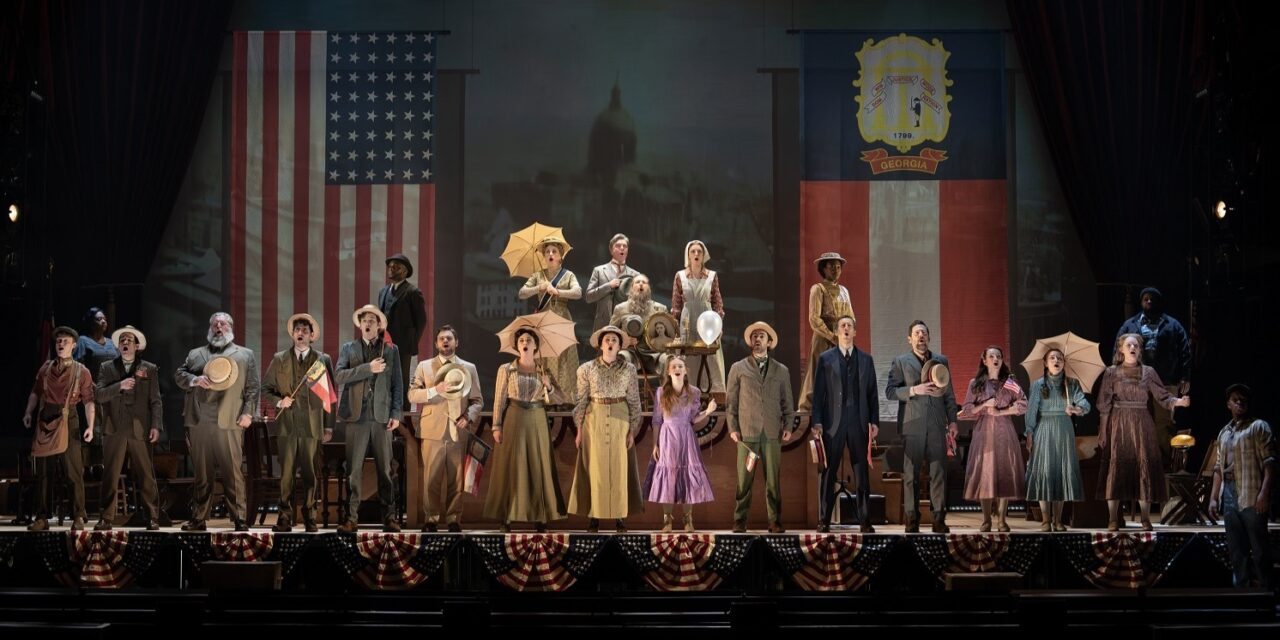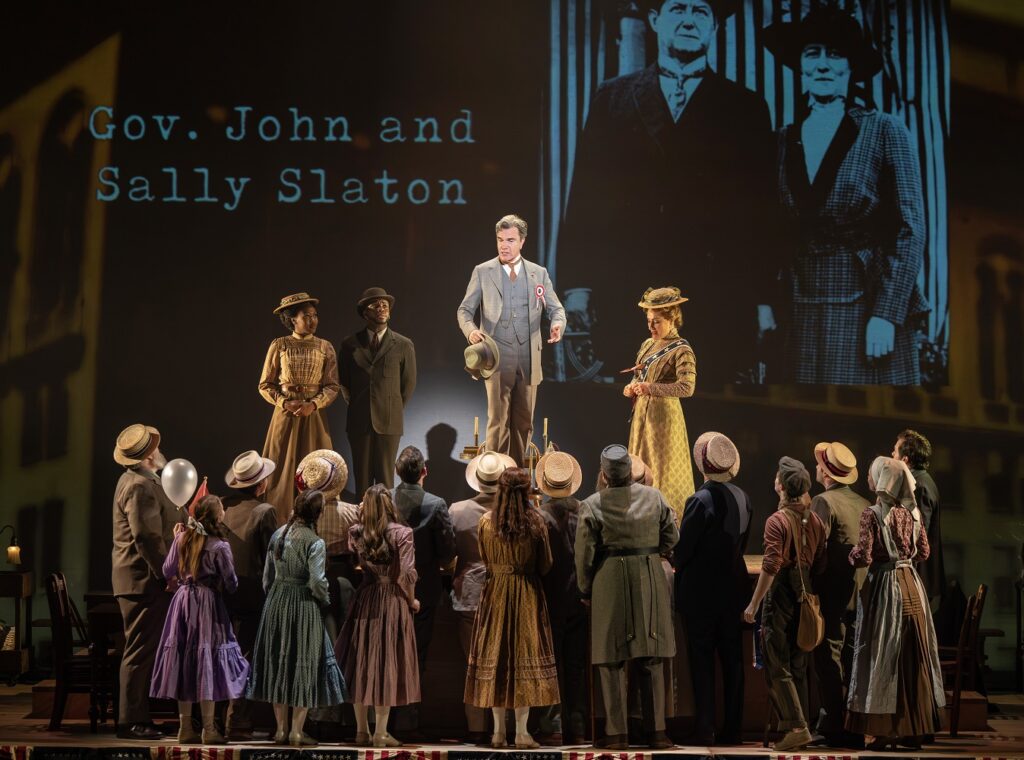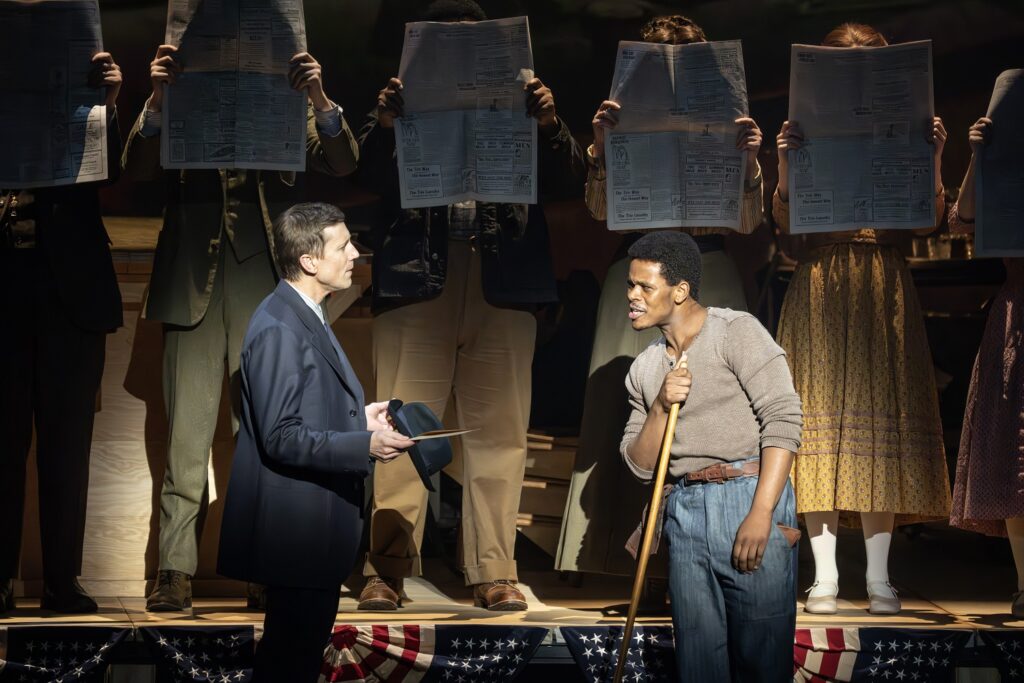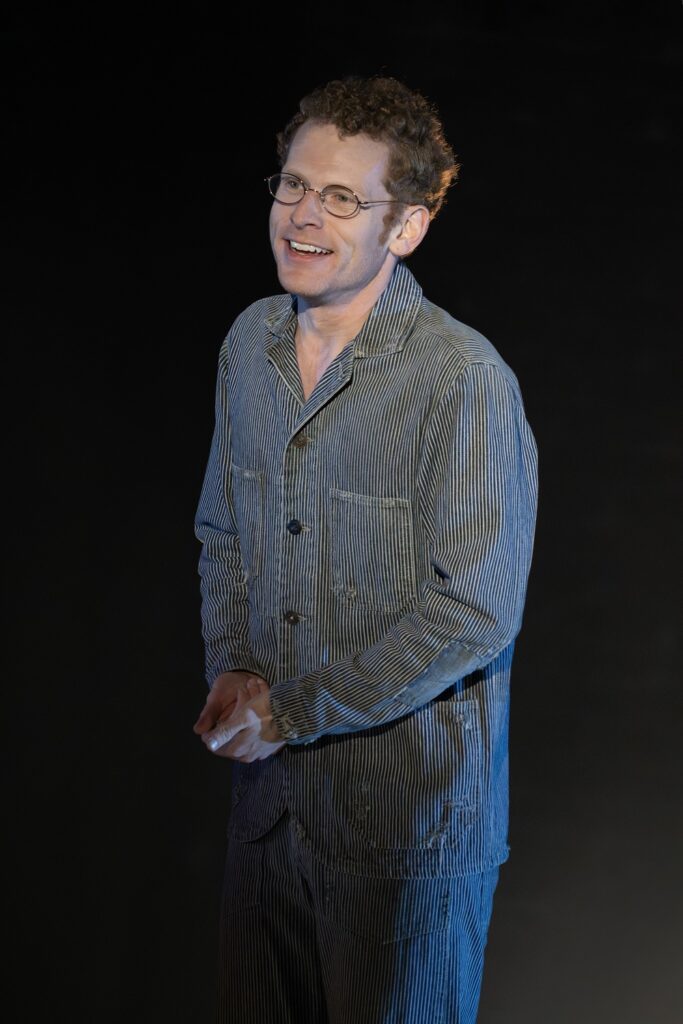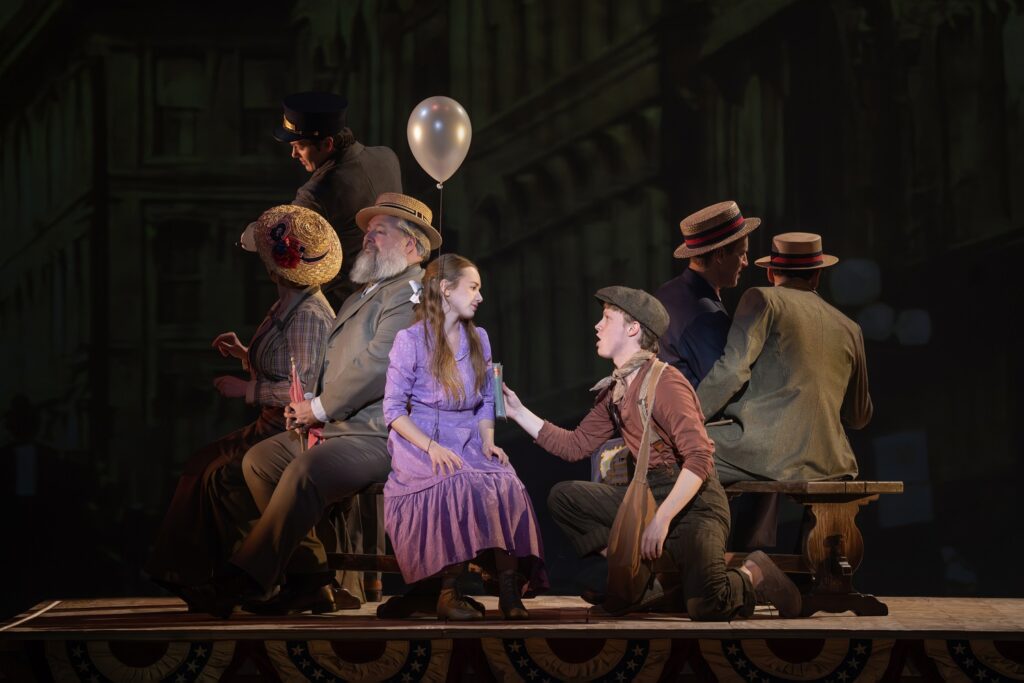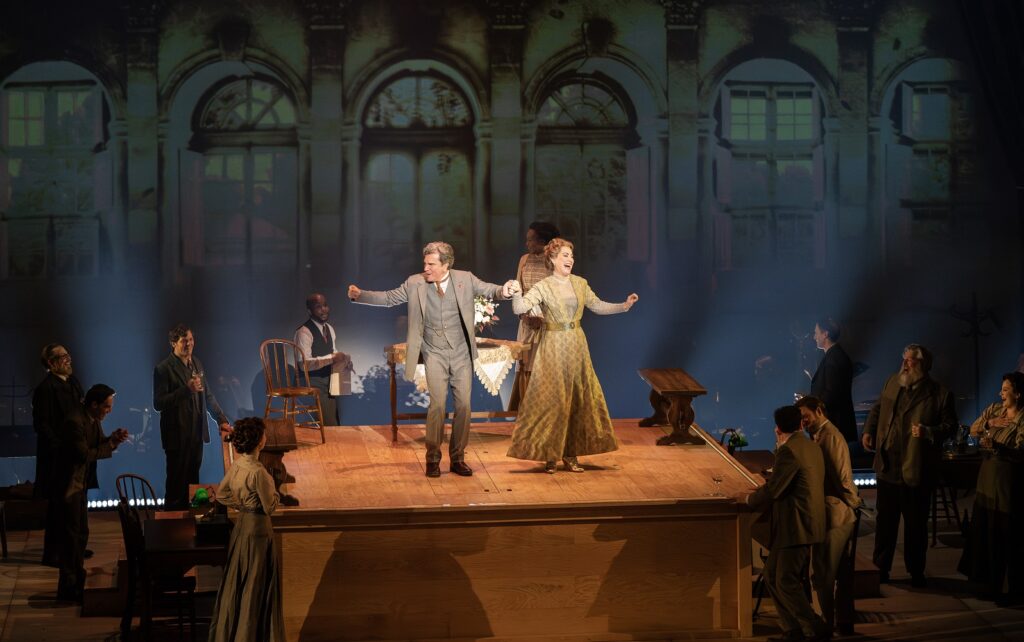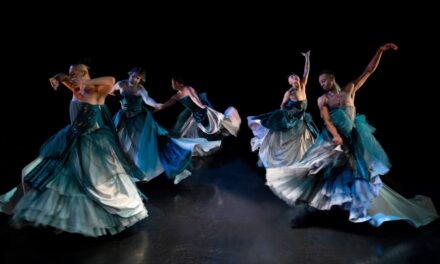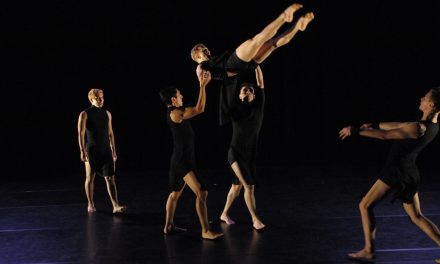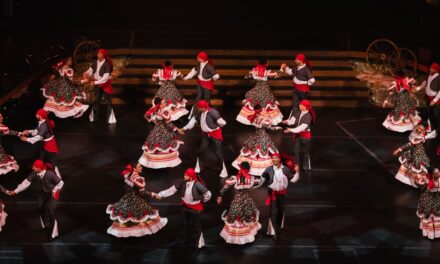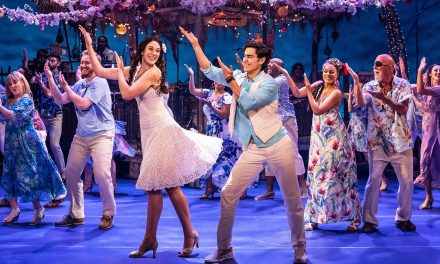“Parade,” the Tony Award-winning musical revival, opened June 18 and runs through July 12, 2025, at Center Theatre Group’s Ahmanson Theatre. Originally co-conceived by Harold Prince, the show premiered at Lincoln Center’s Vivian Beaumont Theater in December 1998. Over two decades later, this gripping work feels as timely, and vital, as ever.
Based on the true story of Leo Frank, “Parade” unfolds a harrowing chapter of American history that occurred more than 110 years ago, when racism, and antisemitism, fearmongering, and mob mentality led to a grave miscarriage of justice.
The score by Jason Robert Brown is haunting, ranging from jubilant Americana to dissonant, emotionally searing ballads, even incorporating an 18th-century hymn to deepen the historical resonance. Alfred Uhry’s book, rooted in personal ties; his uncle owned the pencil factory at the center of the case, adds a deep understanding and emotional authenticity to the narrative.
The title, deceptively simple, takes on a chilling meaning. It opens with a young man deciding his fate as he marches to war from Marietta, Georgia 1863. What begins as a nostalgic tableau soon darkens into scenes of devastation; burnt out shells of homes, bodies strewn over scorched fields…Then all fade to, “Atlanta, 1913,” where a Confederate Memorial Day celebrations blooms into flags, parades, and patriotic pride. Clearly evident are the seeds of division and danger still lurking beneath the surface.
The Choreographers Lauren Yalango-Grant and Christopher Cree Grant create stage pictures that strike with both beauty and brutality. Their work evokes sweeping emotion, underscoring the escalating tension and moral dubiousness of the unfolding drama.
At the heart of the story are Leo and Lucille Frank, a young Jewish couple trying to build a life in the South. Leo, an outsider from Brooklyn, finds himself accused of murdering 13-year-old Mary Phagan, one of his factory workers. Gossip, prejudice, and political ambition fuel a frenzy that pushes truth aside in favor of spectacle.
Max Chernin, as Leo, delivers a wrenching performance, balanced with quiet dignity against bursts of emotional fire. His renditions of “It’s Hard to Speak My Heart” and “This Is Not Over Yet” lay bare the torment of a man fighting both for justice and his soul. Talia Suskauer is equally formidable as Lucille, whose journey from simple concerned wife to fierce advocate is impressive. Her solo “You Don’t Know This Man” and duet “Do It Alone” resonates with both love and defiance.
The entire ensemble shines, portraying a community spiraling into hysteria. Griffin Binnicker brings cold calculation to the role of Tom Watson, using mob justice to propel his political ambitions. Jack Roden’s Frankie Epps, a young man infatuated with Mary Phagan (played with flirtatious charm by Olivia Goosman), tragically twists his grief, from the loss of Mary, into a weaponized crusade against Leo.
The powerful design team adds to the atmosphere with Dane Laffrey’s at times bright, but more often moody evolving set transitions that effortlessly move between bustling city streets, a stark office room, prison cells, and courtrooms. Susan Hilferty and Mark Koss’s period costumes summon the Edwardian South in muted golds, khakis, browns and deep blues on adults, contrasting light pinks and violets of the young women.
Musical highlights abound: “There Is a Fountain” and “It Don’t Make Sense” transform a funeral into a crucible of rage and manipulation. Jim Conley’s blistering “Feel That Rain Fall” is a vocal tour-de-force, channeling raw fury and reprisal; while Prentiss E Mouton as Riley and Oluchi Nwaokorie as Angela, playing African-American domestics,’ tell it like it is, in “A Rumblin’ and a Rollin’” offering honest commentary on the racial hypocrisy of the case. The poignant climactic “All the Wasted Time,” a love song between Leo and Lucille, becomes a heart-stopping moment of beauty and regret.
Chris Shyer’s Governor Slaton and his moral awakening, spurred by Lucille, leads him to commute Leo’s sentence to life in prison at the cost of his political future. But justice continues to remain elusive. In the play’s devastating final scenes, Leo is kidnapped from prison and lynched in Marietta. The cycle of violence completes itself with a closing Confederate Memorial Day parade, echoing the prologue.
“Parade” is a triumph, an emotional, enraging, and essential experience. It exposes how fear and prejudice can devour truth but also honors the resilience of those who speak out against injustice. As the final drumbeats fade, its message reverberates far beyond 1913 Georgia and resonates in the heart of modern America with its slow, sharp retribution, imagined guilt, and vigilante justice. It is a powerful reminder that we must forge a better path forward.
For more information about Center Theatre Group’s Ahmanson Theatre, please visit their website.
Written by Joanne DiVito for LA Dance Chronicle.
Featured image: The National Touring Company of PARADE – photo by Joan Marcus.

